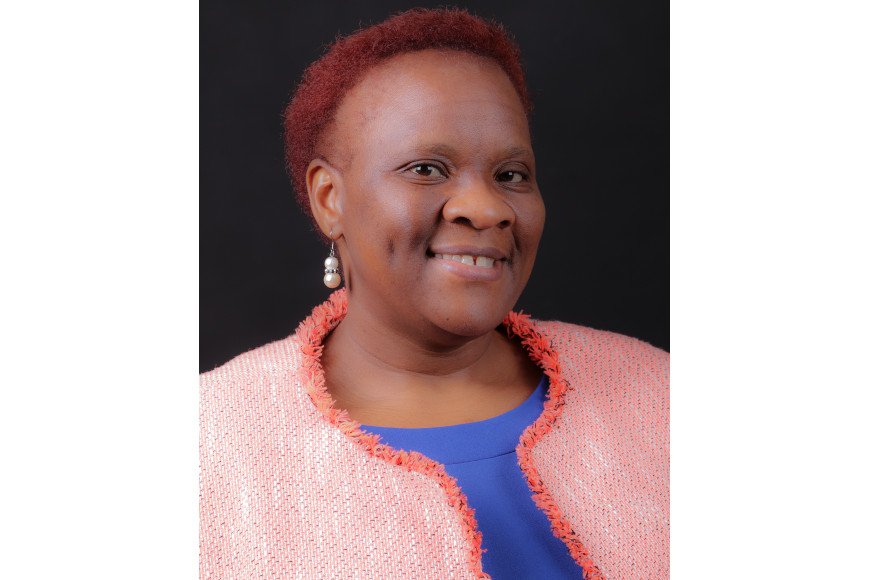The Department of Higher Education and Training (DHET) recently awarded funding of R7 950 000 to the Durban University of Technology (DUT) to assist in the implementation of the Unfurling Post School Education and Training (UPSET) Project.
Speaking about this project, the Deputy Vice-Chancellor: Teaching and Learning at DUT, Professor Nokuthula Sibiya said it is a national collaborative project that arose out of the SAQA-DUT Articulation Research Project (2015-2020).
“As the latter was reaching its end, Prof Darren Lortan assembled a team to establish a Research Focus Area within the Post School Education and Training (PSET) arena. When that did not materialise, we used the framework we had established as the basis of a submission to the National Research Foundation (NRF), with Dr Anisa Vahed being the Principal Investigator, to fund a component of the UPSET Project work. We also decided to submit an application to the University Capacity Development Programme (UCDP) for funding and over the period of July 2020 to February 2021, a number of refinements were made to the proposal until we were notified at the end of March 2021 of the outcome,” said Prof Sibiya.
She added that they were obviously elated at the prospect of affording DUT its first opportunity to host a competitive Collaborative Development Grant. Explaining that as the anchor institution, DUT will be playing a leading role in the development of Articulation Implementation Plans (AIPs). Furthermore, Prof Sibiya said it would be remiss not to point out that Articulation is a legislative imperative designed to enable applicants in possession of TVET Colleges qualifications to be admitted into cognate qualifications offered at Higher Education Institutions (HEIs), should such applicants meet the requirements.
“These Articulation Implementation Plans (AIPs) are intended to be living documents that will formally outline how universities will collaborate with partner Technical Vocational Educational and Training (TVET) Colleges in developing and implementing articulation initiatives. Communities of Practice comprising of articulation champions, drawn from TVETs and HEIs, will develop the formal AIPs. These will need to be approved by the respective institutions. They then need to be promoted by these institutions so that applicants to HEIs and TVETs are aware of the options that Articulation affords them. DUT will be the KwaZulu-Natal (KZN) regional articulation Hub. Under the auspices of the Project, three other regional Hubs will be established in the Free State, Western Cape and Limpopo to develop and promote AIPs in their regions,” said Prof Sibiya
Over the three years of the project, Prof Sibiya said nine regional hubs will be established, each of which will be contributing to the tracking of articulating students, curriculum co-development among and between TVET and HEI partners and the development of formal AIPs. She said they hope that articulation will become the norm rather than the exception to higher education access. It is anticipated that the project will be officially launched nationally as a webinar on Articulation within the next six weeks.
Prof Sibiya is the Senior Manager tasked with the overarching responsibility for the UPSET Project, and Prof Lortan is the Project Co-coordinator tasked with the responsibility of ensuring that the project goals and objectives are accomplished, and the planned deliverables are accounted for. The team that contributed to the development of the UPSET Project are; Dr Anisa Vahed, Prof Ashley Ross, Ms Nicky Muller, Dr Kavita Beemsen, Dr Gita Mistry and Dr Sandra Land.
Prof Sibiya expressed her sincere appreciation to the team that contributed to the development of the UPSET Project. She also extended her appreciation to the Department of Higher Education and Training for funding the project which supports ENVISION2030’s engaged university strategic objective.
“DUT being the anchor institution, the UPSET Project will coordinate staff capacity development programmes. This will ensure greater institutional participation in the development of Articulation Implementation Plans for the realisation of the goals the White Paper for PSET, and those of the National Articulation Policy. By the end of the Project, it is anticipated that a thriving community of practice, comprising active champions will drive robust and sustainable articulation initiatives across the nation.”
The Deputy Vice-Chancellor: Research, Innovation and Engagement at DUT, Prof Sibusiso Moyo, applauded Prof Sibiya and Prof Lortan for the positive outcome.
“This fits in squarely with our DUT-TVET Engagement agenda which forms part of the coordinating role DUT has as a UNEVOC Centre, which is part of the UNESCO-UNEVOC, that acts as part of the United Nations mandate to promote peace, justice, equity, poverty alleviation and greater social cohesion. Articulation is one of the key areas that needs bedding down to have formal agreements and case studies with various role players in the higher education sector to give a chance to our youth and citizens access to high quality skills training and education. This positive breakthrough comes soon after DUT hosted the Engagement with the TVET sector, DHET and Industry partners through the WRSeta Chair that also flagged articulation as an area needing more attention,” said Prof Moyo.
Pictured: DUT DVC: Teaching and Learning, Prof Nokuthula Sibiya.
Simangele Zuma


